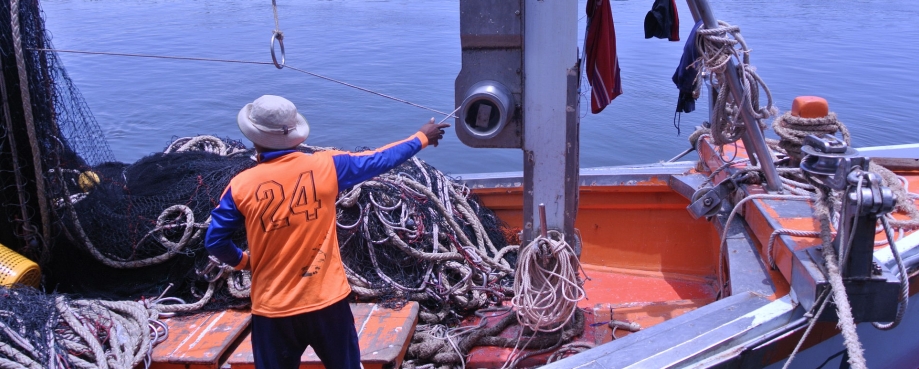
Today, 30 July, is World Day against Human Trafficking.
Sadly, human trafficking is flourishing, particularly in Thailand and South East Asia, where labour rights abuses in the seafood sector are well documented.
ETI has today countersigned a statement from the Seafood Working Group, a global coalition of labour, human rights, and environmental non-governmental organizations, protesting the awarding of a Tier 2 ranking for Thailand in the 2020 Trafficking In Persons (TIP) report, based on its assessment that Thailand has “demonstrated overall increasing efforts compared with the previous reporting period.”
The TIP Report is the US Government’s principal diplomatic tool for engagement with foreign governments on human trafficking and is released each year, ranking countries across 4 tiers based on their anti-trafficking efforts. The lowest ranking, Tier 3, triggers possible aid sanctions. Tier 2 does not lead to such consequences.
In March, a report from the Seafood Working Group recommended that Thailand be downgraded to “Tier 2 Watch List” since it did not fully meet the minimum standards set forth in the US Trafficking Victims Protection Act (TVPA) of 2000 or make sufficient progress to address trafficking in persons in 2019. The Working Group’s report relied on consultations with frontline worker organizations and documented 23 potential labour trafficking cases. Indeed, the evidence presented in the TIP Report itself is much more in line with the criteria for Tier 2 Watch List ranking.
"If we are to expect the best conduct from companies, all States have a responsibility to get their own obligations right in relation to supporting workers, and providing an enabling environment for business to practise ethically," Nick Kightley
The letter states: “With the 2020 TIP Report, the US missed an opportunity to send a clear message to the Thai government that its efforts to combat trafficking need to be more robust.”
It calls for TIP to:
- Make public the Implementation Guidelines for the TVPA Minimum Standards, used by J/TIP analysts to evaluate governments’ efforts in Protection, Prosecution, and Prevention, including any revisions, and to continue working to increase transparency on how ranking determinations are made, including greater clarity on how distinctions are made between Tiers 1, 2, Tier 2 Watch List, and Tier 3.
- Give equal consideration is given to prevention, protection, and prosecution as well as criminal justice responses when assessing whether a country is demonstrating “serious and sustained efforts” to eliminate trafficking.
- Strengthen direct communication with NGO and civil society organizations to ensure that independent research and documentation is utilized as effectively as possible to support the TIP report process each year.
Nick Kightley, Strategic Lead, Food, Farming and Fisheries, at ETI, comments:
“The recommendations made in this letter will support more objective rankings and help organizations compile more appropriate and strategic data.
“It is also important to stress that we are not just looking at Thailand here. If we are to expect the best conduct from companies, all States have a responsibility to get their own obligations right in relation to supporting workers, and providing an enabling environment for business to practise ethically.
"Our experiences in Thailand have taught us a huge amount about what good and bad practices look like, and what to look for. We must shine a light on bad practice everywhere if we are to prevent irresponsible companies from simply moving their buying operations to other jurisdictions in order to avoid scrutiny. And we must challenge all companies to support and reward good practices in their supply chains.”
You can read the full letter to the US State Department here
